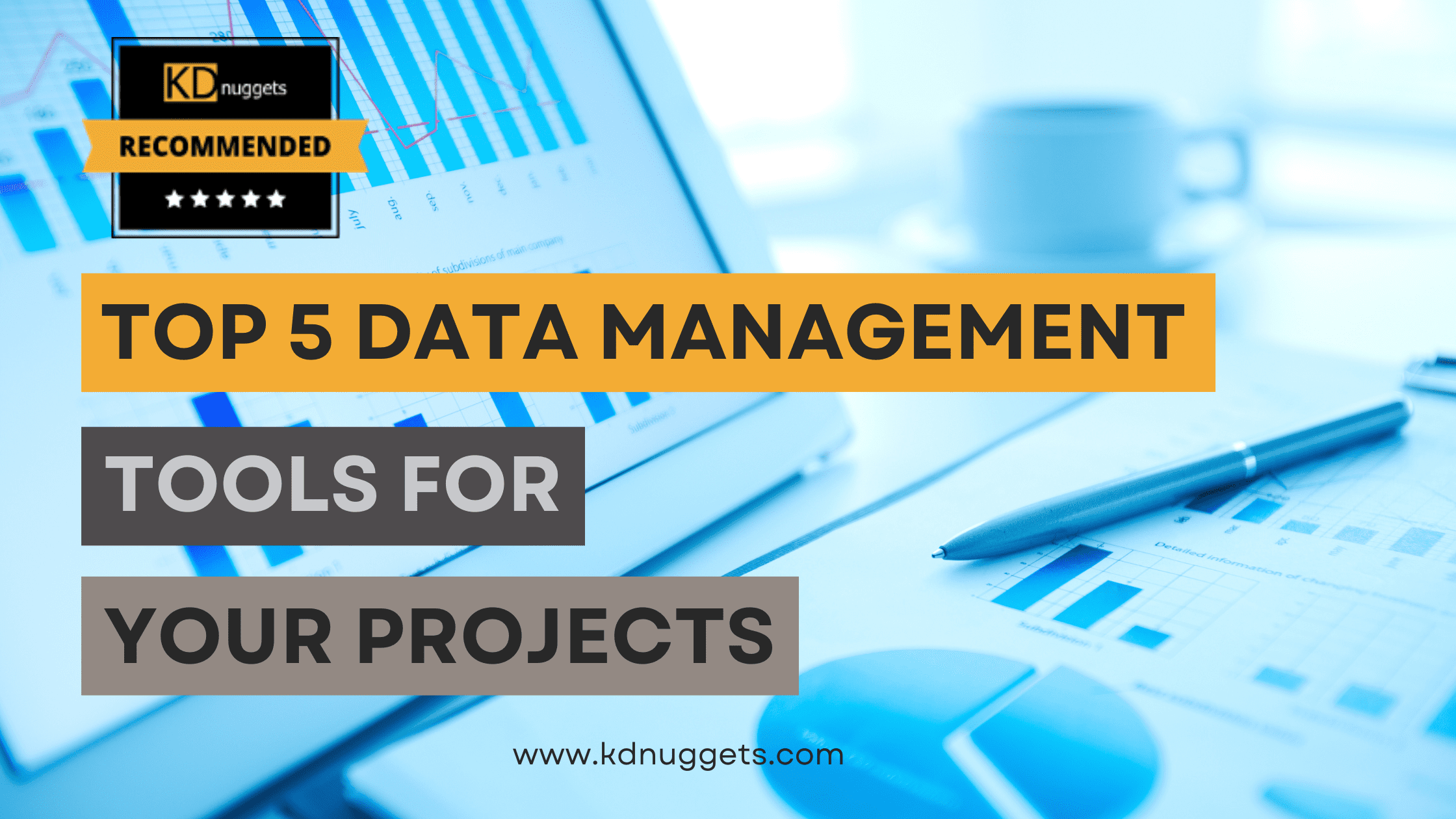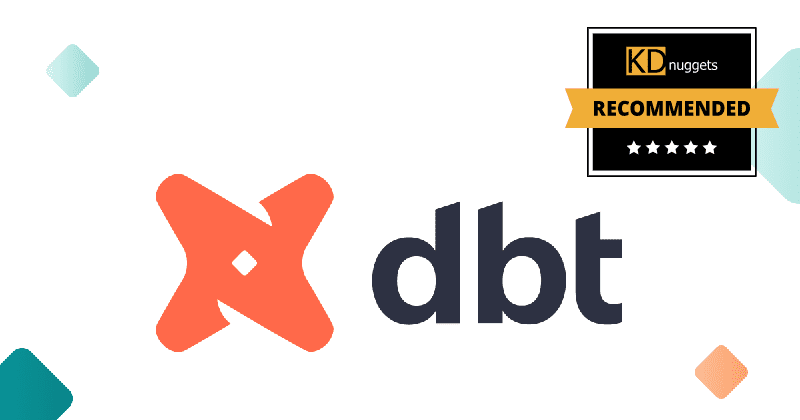The Top 5 Data Management Tools For Your Projects
See what KDnuggets is recommending for the top 5 cutting-edge tools for cloud, ETL, transformation, master data management, and visualization.
Data management involves receiving, validating, and refining data to ensure reliability for users. Data management tools are capable of carrying out a wide array of functions such as rigorous storage, analysis, distribution, and synchronization of data. It is mostly used for Product Information Management, Customer Databases Management, Multimedia Sources Management, and Administrative and Financial Resources Management.
The management of data can be made easier through automation, which reduces redundancies and errors while saving time and costs. These tools aren’t just handy for storage but can also provide features for analyzing data, monitoring file usage, updating associated platforms and applications, etc.
The main types of data management tools are:
- Cloud data management tools
- ETL and data integration tools
- Data transformation tools
- Master data management (MDM) tools
- Data visualization and analytics tools
Each category serves a different purpose in managing large datasets efficiently.
Cloud Data Management (AWS) provides a wide range of cloud computing services that enable organizations to build sophisticated data management pipelines and analytics workflows. Key offerings include Amazon Redshift, a data warehousing service that allows for easy scaling and SQL-based analysis of petabytes of structured data. Amazon Athena enables serverless SQL queries directly against data stored in S3. The AWS services create a powerful cloud-based platform for managing and deriving insights from large datasets. The pay-as-you-go pricing model allows organizations flexibility and reduces infrastructure costs.
- Offers multiple tools and databases
- Pay-as-you-go basis solutions
- Cost effective for smaller businesses
- Includes a variety of databases and tools
- Offers a comprehensive solution to manage and develop your data needs
- Cost-effective
- Highly reliable and available
- Using some tools can be difficult due to their complex user interface
- Billing can be confusing
- Require experts in cloud computing
Fivetran is a cloud-based data integration platform that automates the movement and transformation of data between sources and destinations. It provides pre-built connectors to easily extract data from applications, databases, APIs, and files, and load it into data warehouses and lakes. With its powerful capabilities, Fivetran enables seamless extraction, loading, and transformation of data across various sources and destinations, making data integration a breeze.
- Fully managed data pipeline
- No data limit
- One platform for all your data movement
- Automation, reliability and scale
- Great value for money
- Straight forward setup
- Low code ELT data operations
- Easy Integration
- Lacking Custom features
- Occasional delays do occur
- Syncing large amounts of data can be expensive
dbt (data build tool) is an open-source platform for managing and executing SQL-based data transformations. It allows analysts and data engineers to develop modular, reusable transformation logic that can be applied across data sources within a data platform like a warehouse, lake, or database. dbt handles dependency mapping, schema compilation, and execution of transformation code while providing tools for refactoring, documentation, testing, and version control.
- SQL transformations
- Can be run within your own data warehouse, lake, database, or query engine
- Version Control and CI/CD
- Test and Document
- dbt transformations are written in SQL
- Transformations are streamlined
- Transformations are run in near real-time
- Operational features like CI/CD, versioning, and collaboration
- Not for non-technical users
- dbt is centered on transformations only and limited
- Missing support for some data lakes, relational databases, and data warehouses
Informatica is an enterprise master data management solution that competes with IBM's InfoSphere and Oracle's Siebel UCM. It is a flexible, multidomain solution supporting master data management both on-premises and in the cloud. A key advantage of Informatica is its ability to handle multiple domains and relationships of master data, whether on-premises or in the cloud. It provides a centralized platform to squareover, explore, manage and share master data across the organization through various tailored applications. This improves data quality, governance and business productivity.
- Enterprise master data management solution
- Integrations with third-party applications
- Modular Configuration
- Great scalability and security
- Highly valuable data-cleaning capabilities
- Efficient match and merge capabilities with audit trail
- Accurate and consistent master data management
- Complicated initial setup
- Outdated UI
- Needs improvement in data catalog and data marketplace
Tableau is an excellent data visualization and business intelligence tool for analyzing and visualizing vast volumes of data. It helps users create charts, graphs, maps, dashboards, and stories to visualize and analyze data to help make business decisions. Tableau supports powerful data squareovery and exploration, enabling users to answer essential questions in seconds. Users without prior programming knowledge can begin creating visualizations immediately using Tableau. Moreover, you can connect to several data sources that other BI tools do not support. With Tableau, users can generate reports by combining and blending various datasets.
- Powerful tool for data discovery and exploration
- Connects to multiple data sources
- Centralized data management with Tableau Server
- Easy to use
- Free community version available
- Multiple integrations
- High performance
- Facilitates sharing and collaboration
- Pro version is expensive
- Security concerns
- Lacks features of a full-fledged BI tool
Data management tools play a critical role in organizing, processing, and analyzing data to drive business insights. As data volumes continue to grow, having robust tools to manage data throughout its lifecycle becomes even more important.
This article provided an overview of five leading data management solutions: AWS, Fivetran, dbt, Informatica MDM, and Tableau. Each tool serves a different purpose, from handling cloud data at scale to seamless ETL pipelines to master data management and analytics.
Abid Ali Awan (@1abidaliawan) is a certified data scientist professional who loves building machine learning models. Currently, he is focusing on content creation and writing technical blogs on machine learning and data science technologies. Abid holds a Master's degree in Technology Management and a bachelor's degree in Telecommunication Engineering. His vision is to build an AI product using a graph neural network for students struggling with mental illness.






